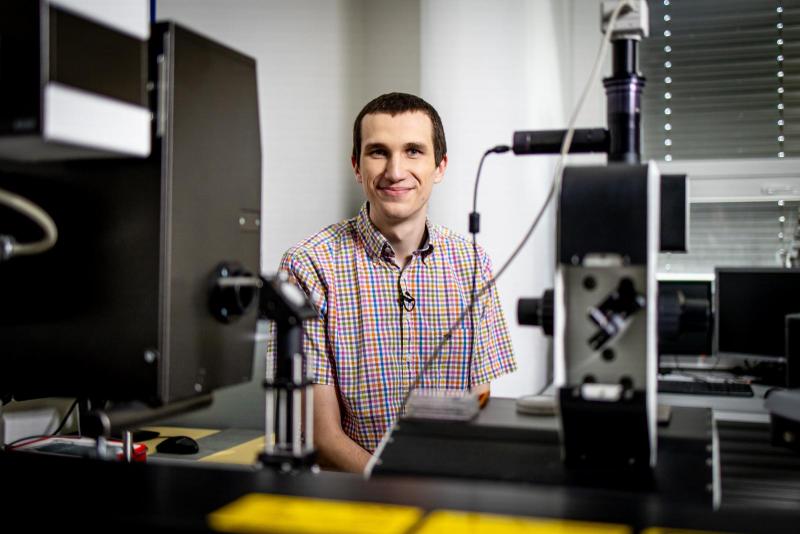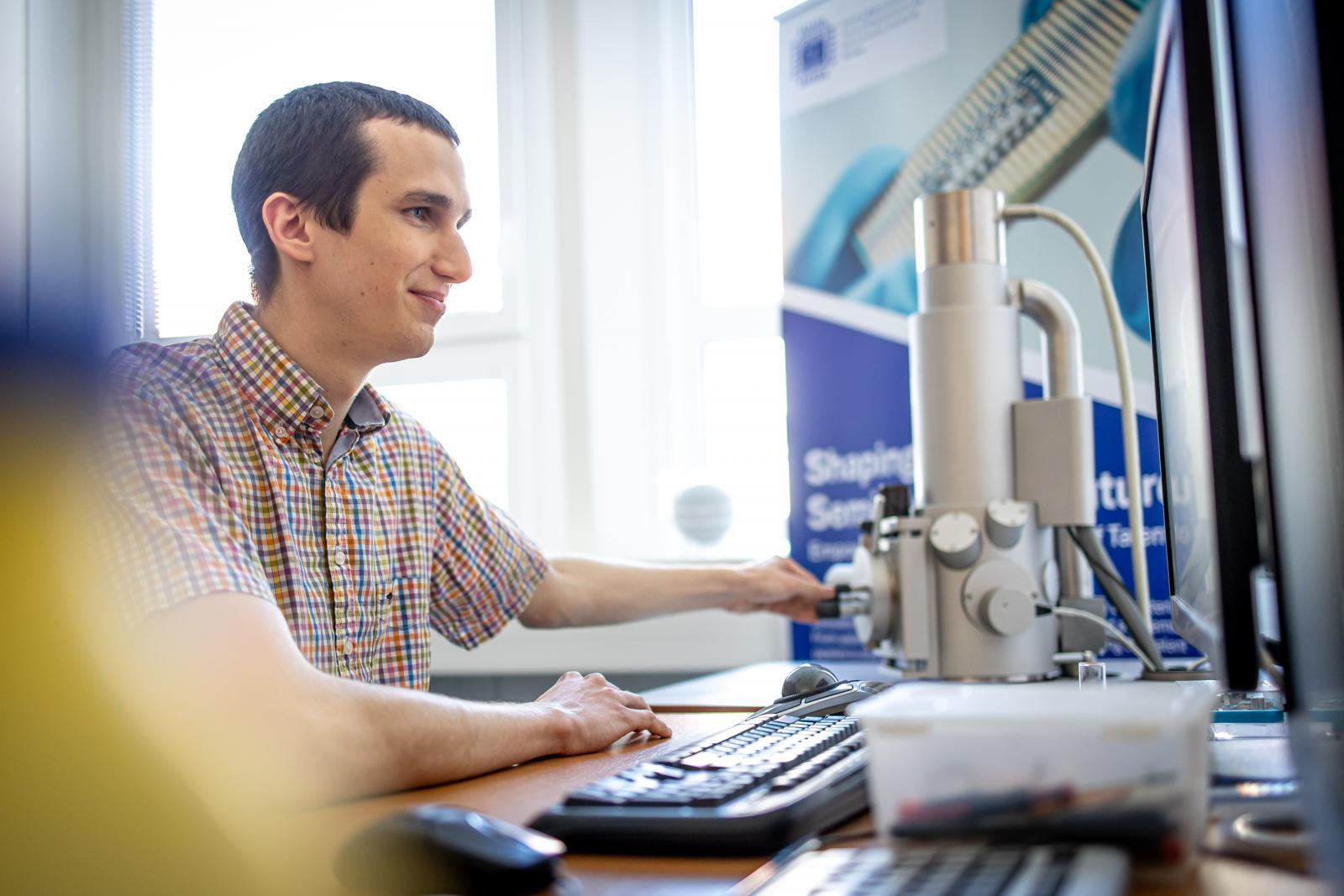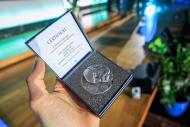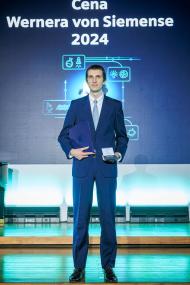People
Bismuth as a cheaper alternative to gold

Michael Foltýn's experiment-focused diploma thesis deals with the investigation of plasmonic properties of non-noble metals such as bismuth, indium, lead or aluminium. By comparing their properties with the traditional plasmonic metal – gold – the element bismuth has emerged as the most promising candidate that could replace gold in specific practical applications. Bismuth thus became the main material that Michael Foltýn studied in his work. He dealt not only with plasmonic antennas produced by ion lithography but also with the chemical synthesis of bismuth nanoparticles. Subsequently, he investigated the properties of these nanostructures in detail and confirmed that bismuth can replace gold in plasmonics, thus reducing the cost of producing medical tests based on gold nanoparticles, for example.

Making expensive technology available
Plasmonics is a rapidly developing field of physics that finds use in many practical applications – from prototypes of various medical tests and ultra-thin lenses to absorbers increasing the efficiency of solar cells. Traditionally, precious metals have been used in all these applications: mainly gold and silver. However, the cost of these technologies is understandably high and their availability is therefore low. The solution could therefore be to replace them with cheaper, non-noble metals. The results of Michael Foltýn's diploma thesis suggest that it can be done. However, it is still difficult to estimate when and if this will happen. "Determining the time horizon is somewhat tricky. The topic of non-noble metals may become fashionable, which will lead to large investments and thus accelerate the application of results. However, it is also possible that it will be a dead-end evolutionary branch and we will never see bismuth in utility plasmonics," points out Michael Foltýn.
Science as an adventure
Michael Foltýn considers the synthesis of bismuth nanoparticles to be the most difficult phase of his work. Or more precisely, their purification from surfactants and chemical residues that distort spectroscopic measurements. Although he is not a chemist himself and there was no chemist around to help him, he was able to cope on his own. "I really enjoyed cutting my way through despite the fact that there was no one to guide me. This is how I imagine that scientists have researched a long time ago. It's an adventurous feeling," he says.
When asked who his greatest scientific or life role model is, he answers: "Michael Farraday has always been and will always be a scientific role model for me. Experimental physicist, originally a bookbinder who educated himself by reading the books while binding them. It is an example to me that physics does not belong only to geniuses and that precise experimental work is a good way of understanding how things work. And among the living personalities, my role model for me is my supervisor Michal Horák. I appreciate how he can navigate the scientific world with its crazy pressure on the quantity and quality of scientific publications while maintaining his life's peace, perspective and well-being. I would like to get this 'scientific Zen' one day."
Unusual wishes
Michael Foltýn's success in the competition for the Werner von Siemens Prize confirmed that the topic he is working on is attractive and technologically relevant. And that is very important and motivating for him – mainly because he continues to study plasmonics of non-noble metals as part of his doctoral studies.
And how will he use the financial reward he received along with the prize? "I'm not quite decided yet, but I've wanted to have my own dosimeter since I was a child. So, I'm considering using this money to buy a proper scintillation detector," adds Michael Foltýn.
Also read: Werner von Siemens Awards 2024: BUT Celebrates Success with Five Awardees
Author: Werner von Siemens Award
Petr Viewegh’s Microcosm and Macrocosm
Awarded student Jiří Kabát uses an electron microscope to measure the temperature of nanoparticles
Women from BUT who move the world of science and technology
BUT has its JUNIOR STAR. Young scientist begins to build her own team
Ceramics that glow. Young scientist wins award for research into new materials for lasers and X-rays



